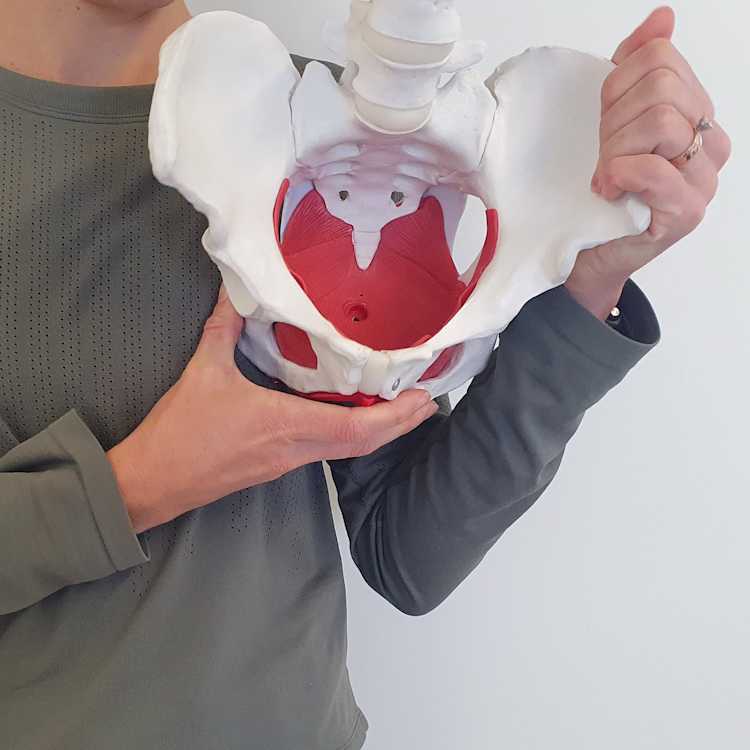
How to do a pelvic floor squeeze!
Have you ever wondered what the pelvic floor muscles are and how to know if you are activating yours correctly? If so, read below for some helpful tips from our women's and pelvic health physiotherapists.
What are the pelvic floor muscles and what do they do?
The pelvic floor muscles are just as their name entails - they literally make up the 'floor' of the pelvis. They are a group of muscles that help to support the pelvic organs, provide continence of the bladder and bowels, and aid in sexual function. Both women and men have pelvic floor muscles. In females, these muscles can change throughout pregnancy, childbirth and with menopause.
The pelvic floor muscles are just like any other muscle in your body and can be trained. They can also be too weak, too strong or too 'tight'. To have a well functioning pelvic floor you need to have a good squeeze, as well as an adequate relaxation. The muscles also need:
to have good endurance and hold time
to have speed and come on quickly when needed
to have coordination when needed (eg. when jumping or sneezing)
So how do you squeeze the pelvic floor muscles?
When the pelvic floor is functioning well - you should feel a 'squeeze' and a 'lift' up towards your abdomen, and then a relaxation back down in reverse. Continue reading for some of our favorite cues and top tips to help to activate these muscles.
Cues to tighten the muscles:
imagine you are holding in urine or wind
imagine you are holding in a tampon
imagine you are sucking a milkshake up a straw
imagine an elevator going up a high rise building
imagine you are picking up blueberries with your muscles
Cues to relax the muscles:
imagine a pebble dropping into a lake and the ripples slowly getting wider
imagine sinking into hot sand
imagine the elevator is slowly moving back down the high rise building
imagine letting go of wind
Four physio's top tips when doing pelvic floor exercises:
try to avoid holding your breath or gripping your buttocks
try to perform exercises in different positions to challenge the muscles - eg. sitting, standing or lying down
speak to one of our Christchurch pelvic floor physiotherapists if you are not sure on what you should be doing. Online bookings are available or you can book online here.